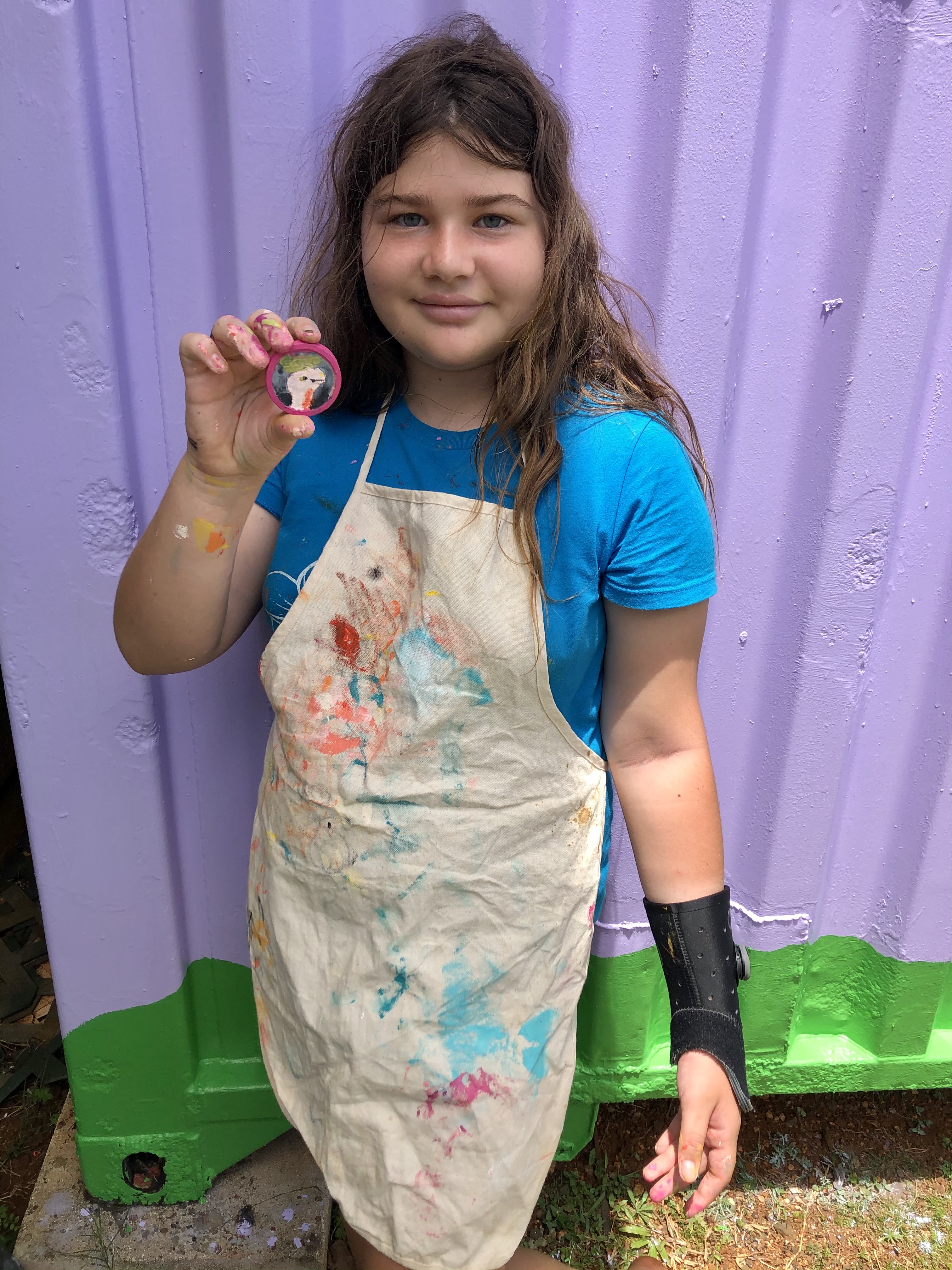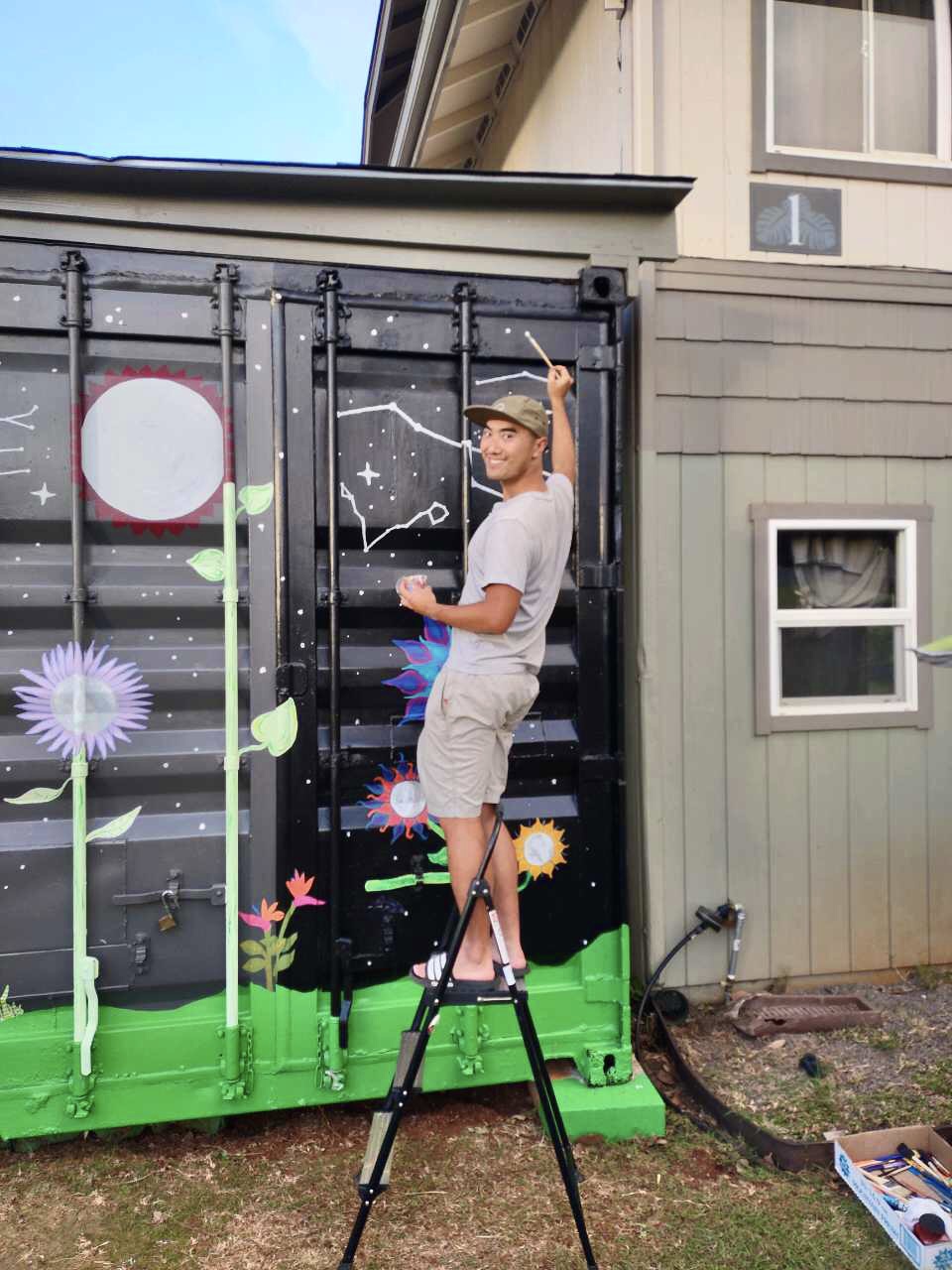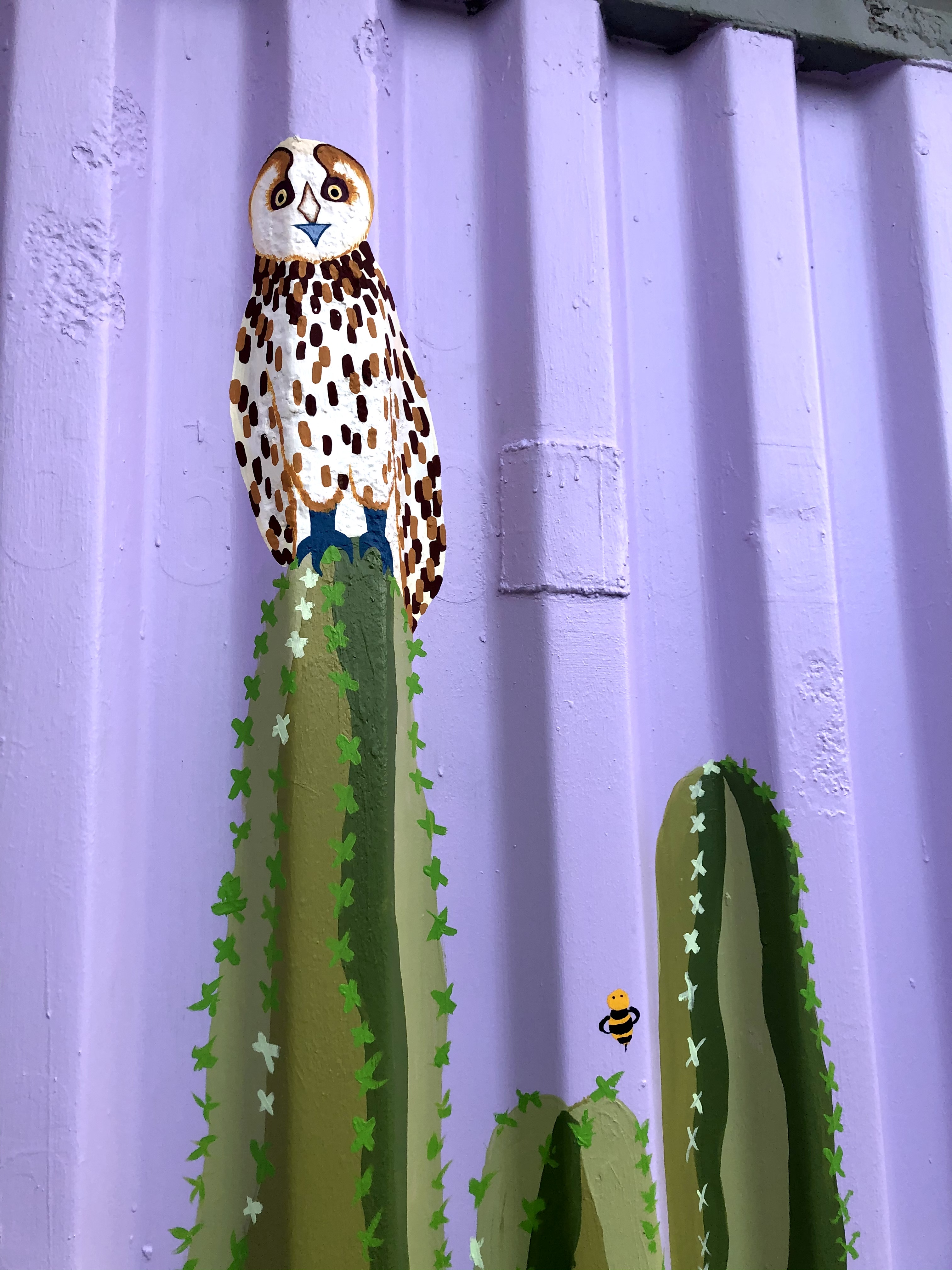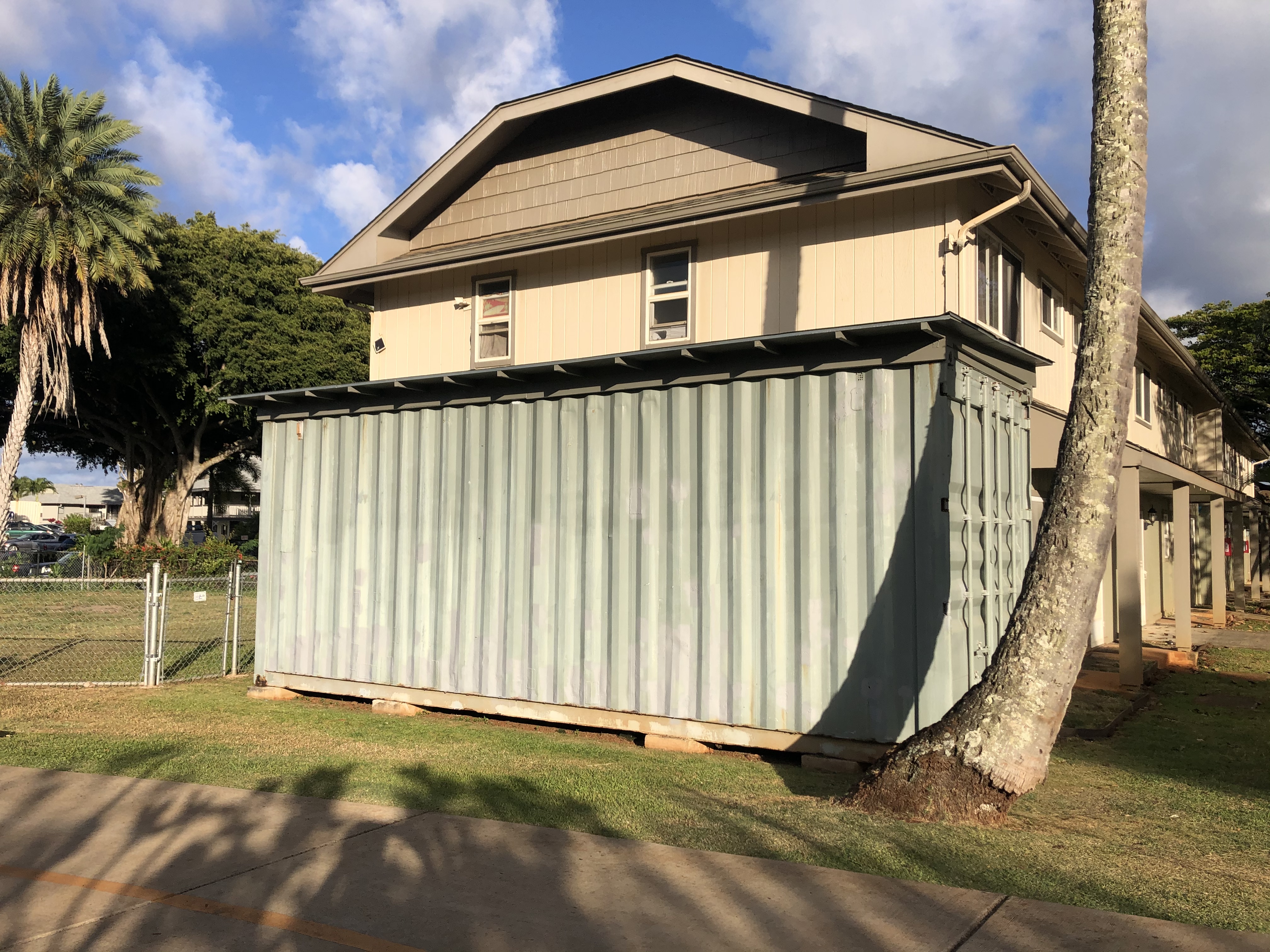
it started with an unremarkable gray shipping container.
what drew me instinctively to this site was this shipping container’s position in an urban “swidden.” this term, which I originally encountered in Anna Tsing’s global ethnography Friction, describes an interstitial or edge zone between areas of nature and industry/activity. used by Tsing to refer to the rainforest swidden lands that existed between unadulturated forest and areas of industrial logging, the swidden is a place of fascinating overlap. in appearance “empty” and often un-beautiful, interstitial realms attract me because they are where curious forms of life and cross-creature assemblages take root. as in nature, surburban, urban, and industrial edge zones and interstices often play host to novel kinds of collaboration.
in our case, the shipping container/tool shed occupied a space between a mutual housing residential community, an undeveloped grassy lot, a parking lot, and a strip of community gardens built by two of the community’s female residents. a bike path used by residents making their way to the bus stop or into town ran alongside .
our mural crew, which grew to include 12+ collaborators (two mother-daughter painting duos, a retired artist and her dog Oreo, the wonderful managers of the Townhomes community, Clif “the maintenance guy,” my wonderful partner Zak, housemate YC, and a handful of friends and resident gardeners), listened to and recorded our embodied experience and the sounds, smells, and sensations of the space, guided by Pauline Oliveros’ notion of deep listening, and used that experience as the basis for our mural.
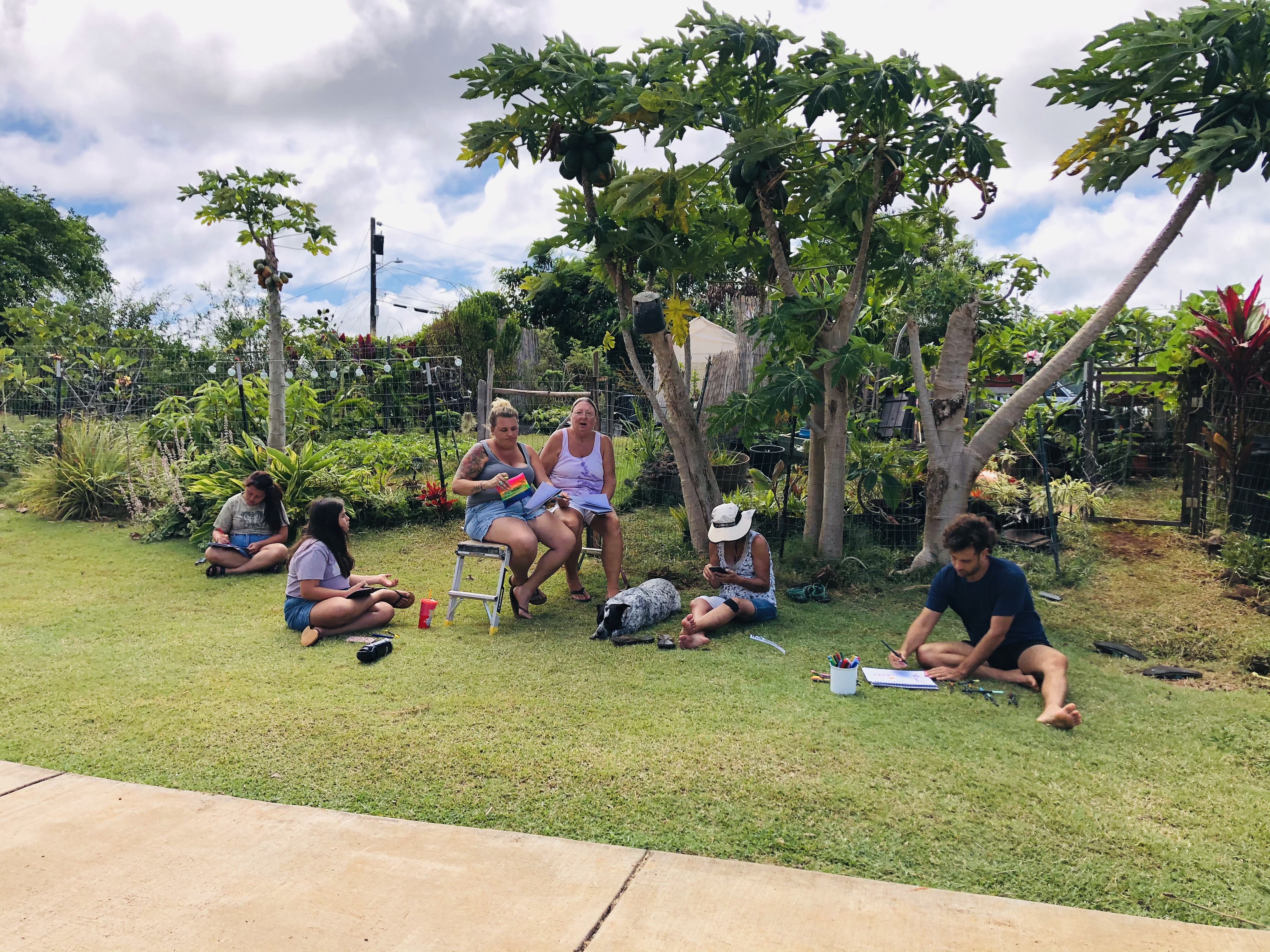
after seven days spent painting in intermittent rain...
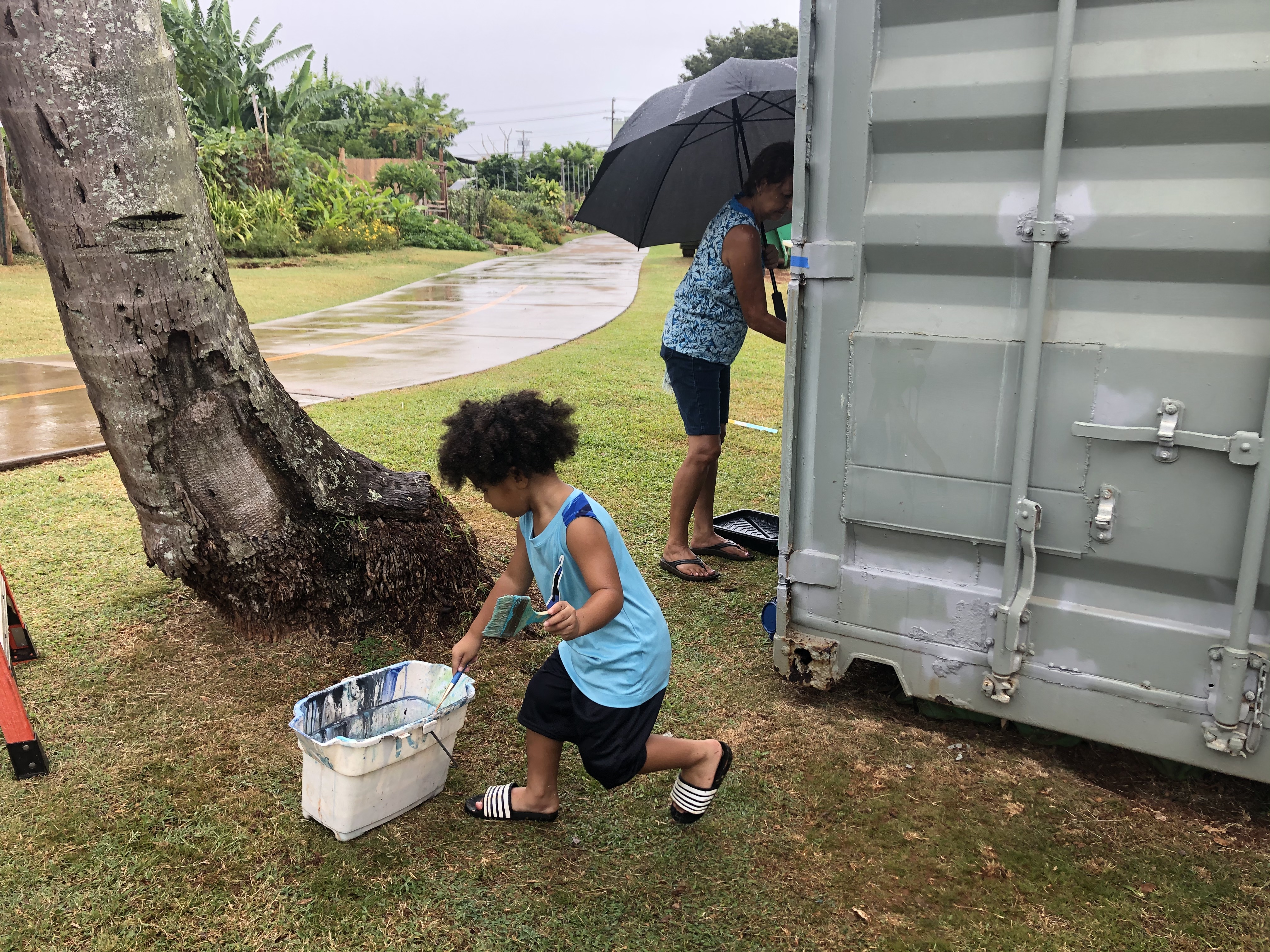
intense island sun...

and with many frequent roll-in-the-grass breaks with Oreo the dog...
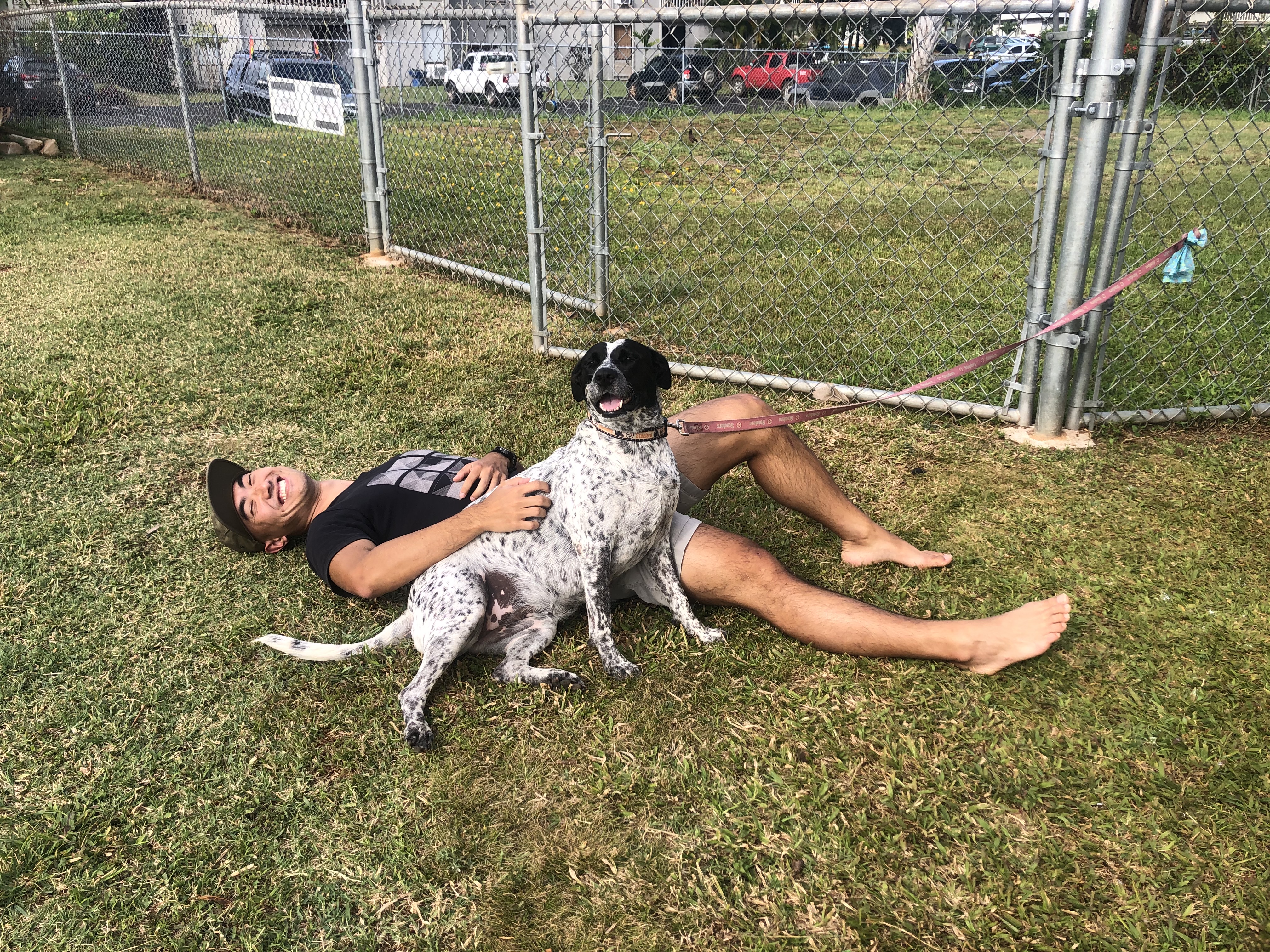
we finished!!!
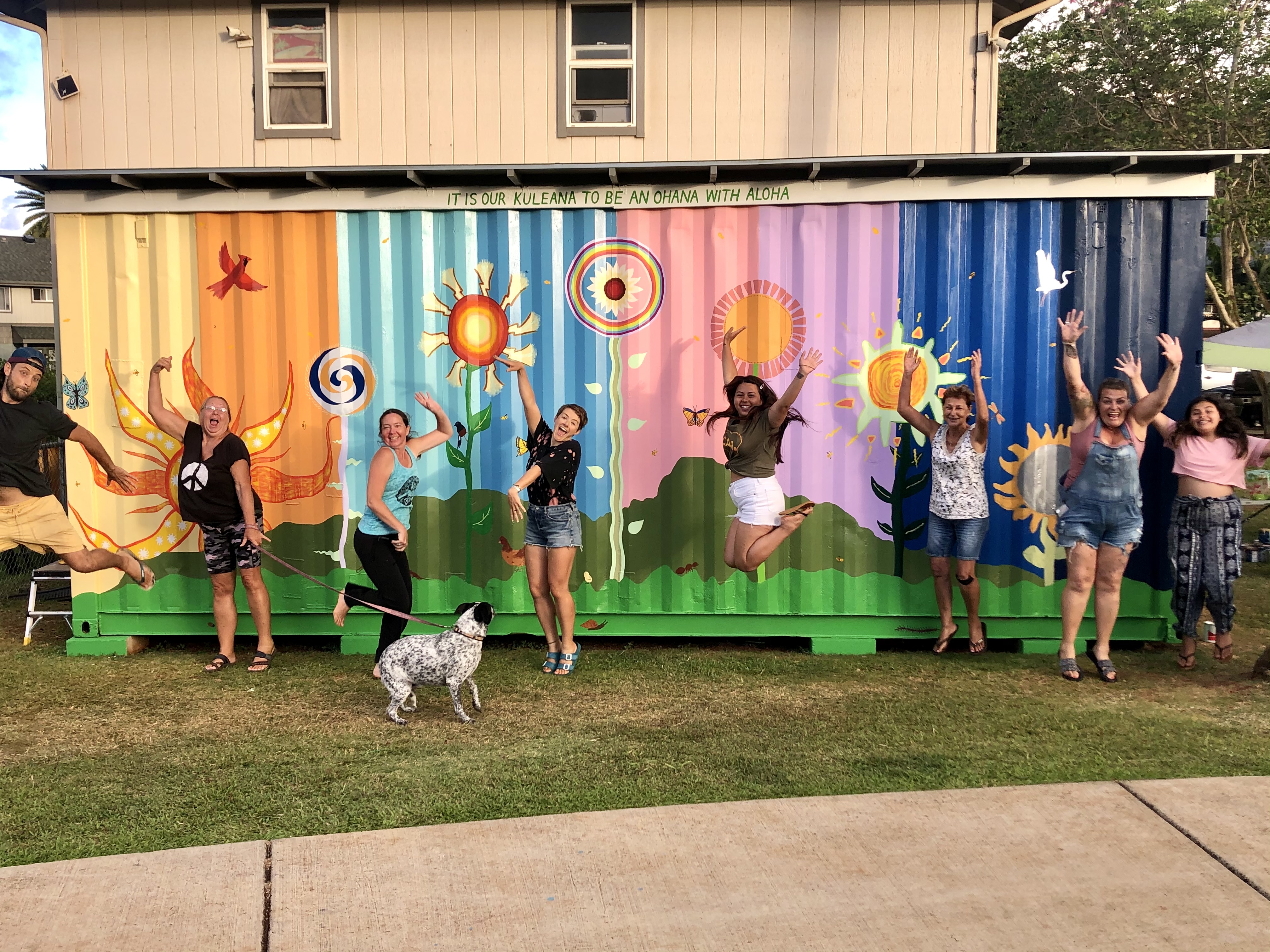
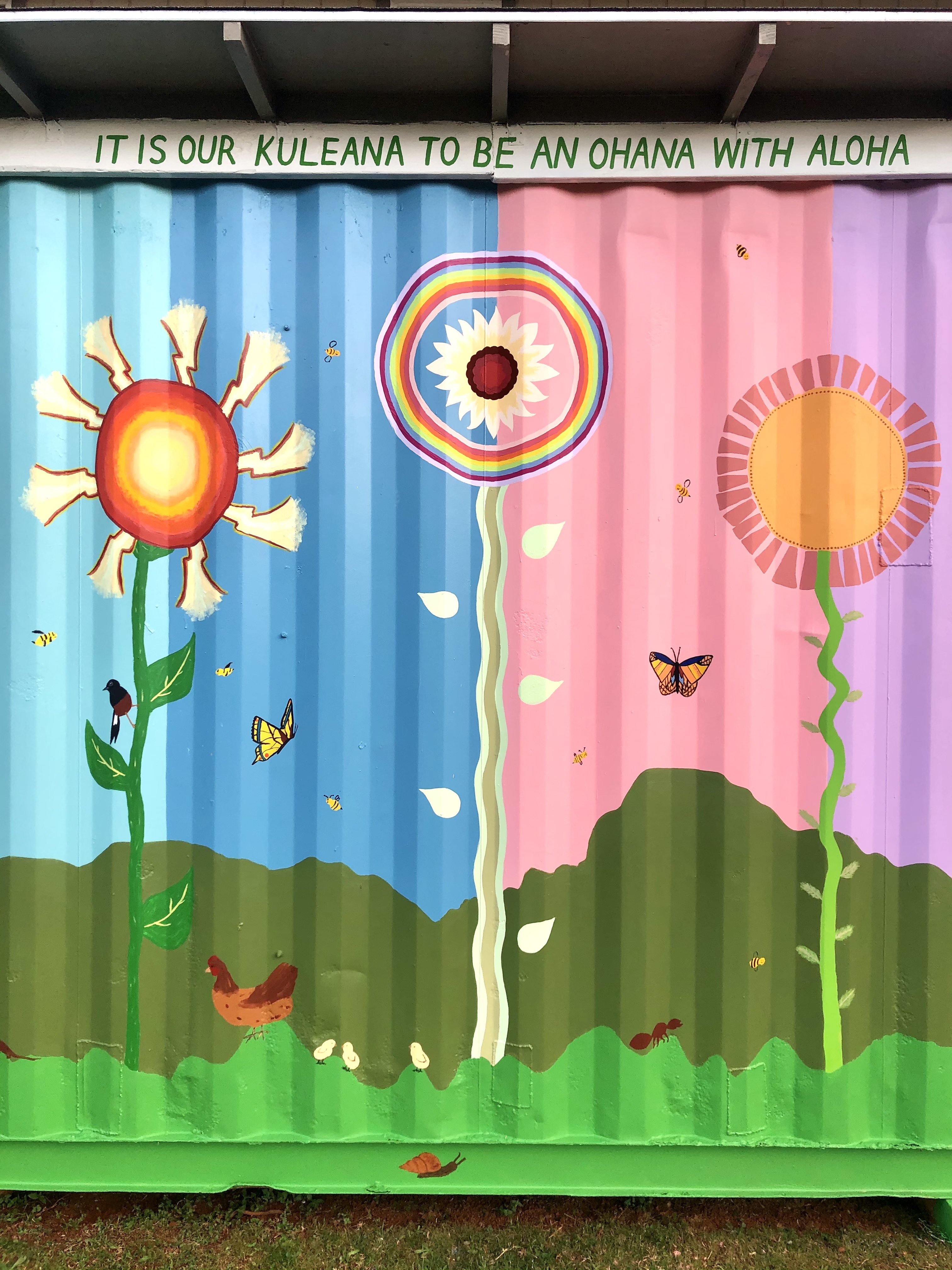 kuleana = responsibility, job; the contribution that one’s skills or life experience supports them to give
kuleana = responsibility, job; the contribution that one’s skills or life experience supports them to giveohana = family. one can have an ohana of all different kinds.
aloha = sharing of breath, time, space. acknowledgement; the spirit of welcome.
NirMānā (pronounced near-MĀNĀ) = comes from a Sanskrit word that means creation/transformation.
